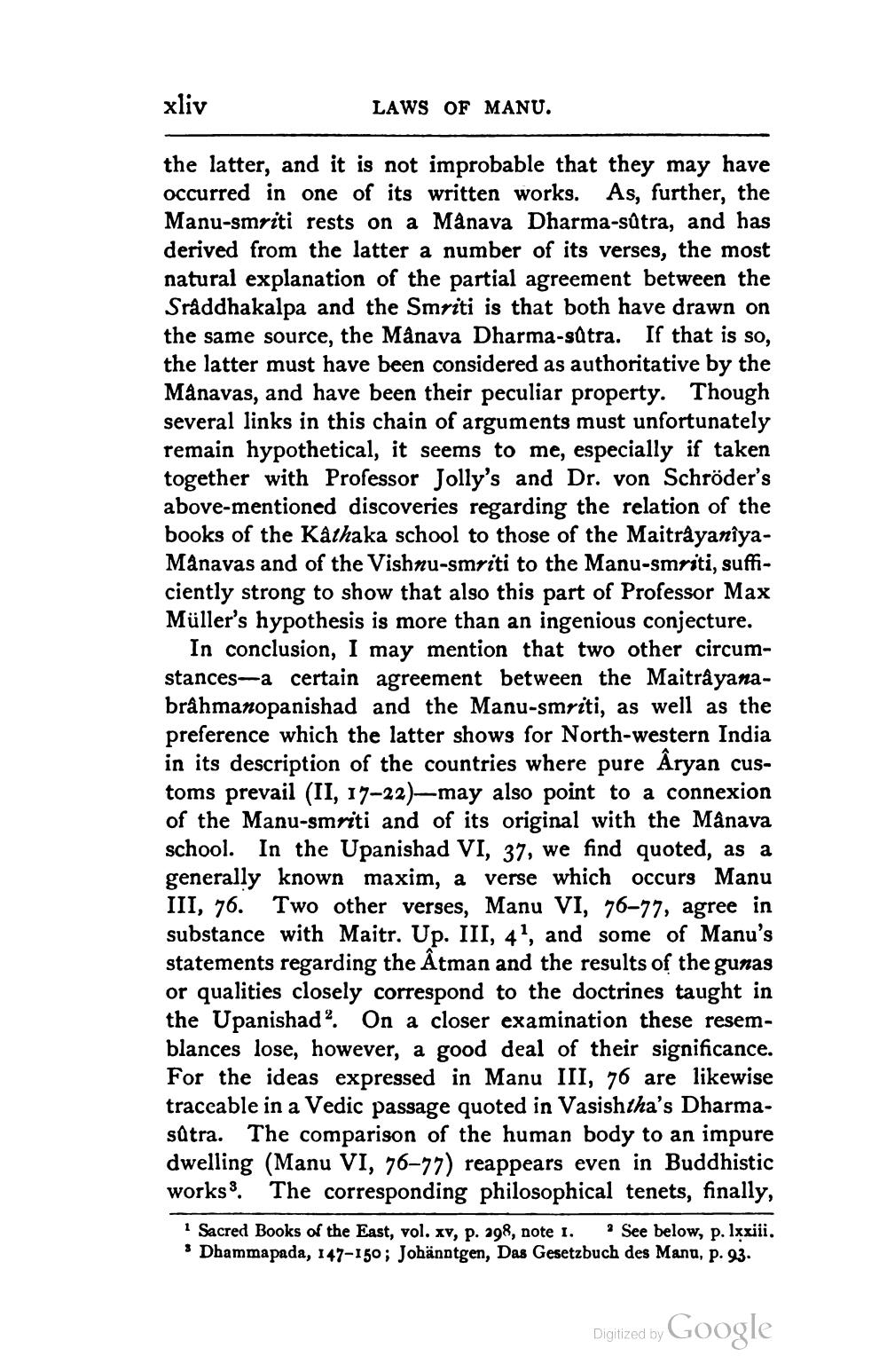________________
xliv
LAWS OF MANU.
the latter, and it is not improbable that they may have occurred in one of its written works. As, further, the Manu-smriti rests on a Manava Dharma-sútra, and has derived from the latter a number of its verses, the most natural explanation of the partial agreement between the Sraddhakalpa and the Smriti is that both have drawn on the same source, the Månava Dharma-sútra. If that is so, the latter must have been considered as authoritative by the Manavas, and have been their peculiar property. Though several links in this chain of arguments must unfortunately remain hypothetical, it seems to me, especially if taken together with Professor Jolly's and Dr. von Schröder's above-mentioned discoveries regarding the relation of the books of the Kathaka school to those of the MaitrayaniyaManavas and of the Vishnu-smriti to the Manu-smriti, sufficiently strong to show that also this part of Professor Max Müller's hypothesis is more than an ingenious conjecture.
In conclusion, I may mention that two other circumstances--a certain agreement between the Maitråyanabrahmanopanishad and the Manu-smriti, as well as the preference which the latter shows for North-western India in its description of the countries where pure Aryan customs prevail (II, 17-22)-may also point to a connexion of the Manu-smriti and of its original with the Mânava school. In the Upanishad VI, 37, we find quoted, as a generally known maxim, a verse which occurs Manu III, 76. Two other verses, Manu VI, 76–77, agree in substance with Maitr. Up. III, 41, and some of Manu's statements regarding the Atman and the results of the gunas or qualities closely correspond to the doctrines taught in the Upanishad? On a closer examination these resemblances lose, however, a good deal of their significance. For the ideas expressed in Manu III, 76 are likewise traceable in a Vedic passage quoted in Vasishtha's Dharmasútra. The comparison of the human body to an impure dwelling (Manu VI, 76–77) reappears even in Buddhistic works. The corresponding philosophical tenets, finally,
1 Sacred Books of the East, vol. xv, p. 298, note 1. See below, p. lxxiii. * Dhammapada, 147-150; Jobänntgen, Das Gesetzbuch des Mana, p. 93.
Digitized by Google




